What comes to your mind when you see the name “Metropotamia”?
I’m guessing you imagine a city of dazzling lights and breathtaking architecture: a bustling, vibrant cityscape with towering skyscrapers, bustling streets, and a diverse range of people and cultures.
See the same name on a poster for a movie, I suppose you might imagine a city of hushed intrigues, dark secrets, and hidden depths lurking in its skyscrapers' shadows.
But what would you think if you saw it on the cover of a book?
Enter Patrizio della Luna, squatting at the library and collecting donated notebooks in which he scribbled his eccentric fictions (as close readers will recall from my last post), to help us answer that question. Laid off due to the pandemic, I had ample time when I first met him to learn his background, and to discover his solution.
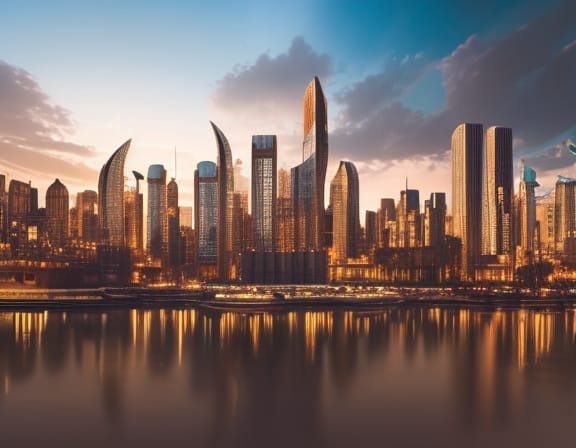
We strolled through Loring Park in downtown Minneapolis while we talked of the historic misfortunes that have visited the city this millennium, beginning with the 2007 collapse of a highway bridge. Throughout the conversation we shared our own backgrounds and misfortunes, and he told me how his family came to the United States from Italy: not following the demographic boom after Unification, however, but instead following World War II. (Apparently his great-grandfather’s influence as a mining magnate helped secure their passage to the Americas.) His family, Patrizio told me, kept to tradition, with his grandmother having impressed upon him the importance of honoring his aristocratic ancestors who lorded once over Luna with an obstinate refusal to adapt the spelling his surname, and to keep his “della” lowercase.
As his publisher, I’ve decided to respect his grandmother’s wishes when his name appears in full—he’s already done it for his own KDP account—though if only his surname appears, I’ll capitalize it as “Della Luna” to indicate the proper noun.
On that stroll too I learned of his aspirations. Out of work then, I told Patrizio how in my now-ample free time I’d pivoted toward publishing literature through Diaphora Books (a subsidiary of Diaphora Co.), in partnership with a friend who had the ISBNs to operate a legitimate press, and the generosity to help Diaphora Books do the same.
When Patrizio heard me he gasped. He told me how he wants to leave an indelible mark on the literary world with his magnum opus: something that guarantees he’ll be remembered as the greatest English-language novelist of the 21st century for writing (if the United States should collapse, as presumed) the last great American novel—even a eulogy for human civilization, should the need arise.
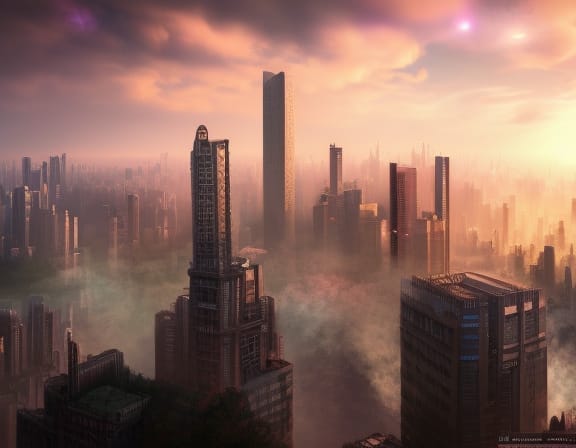
Alright, sure, I probably thought, until he used my old notebooks to write Metropotamia: Book I/X (2020), centered on the same bridge collapse we discussed on our stroll through the park. For Malorie Swanberg, the aspiring photographer who chances to capture it, witnessing the disaster proves life-changing, but the perverse luck of seeing it leaves her uncertain of her own fragmented identity. Among the changes this brings to her life is a deepening relationship with her boyfriend, Jack Rawlins, a troubled young painter who sees his commitment to the arts as a duty that persists even in the face of Armageddon, though that uncompromising perspective brings him into various conflicts with his contemporaries.
I must admit, I already felt impressed when he passed me the draft for Book I/X in autumn of 2020. Now, after reading Book II/X (2021) and Book III/X (2022), I wouldn’t feel too shy about calling the series a literary masterpiece showcasing an incredible talent for storytelling. Della Luna's vivid descriptions paint a rich and immersive picture of a young artist’s life in the city, and his abilities to evoke emotions, to stimulate the senses, and to interrogate the human condition all attest to his exceptional skill as a novelist.
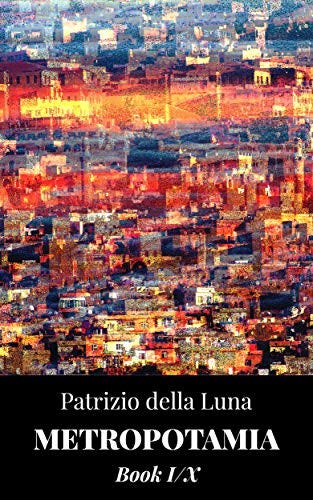
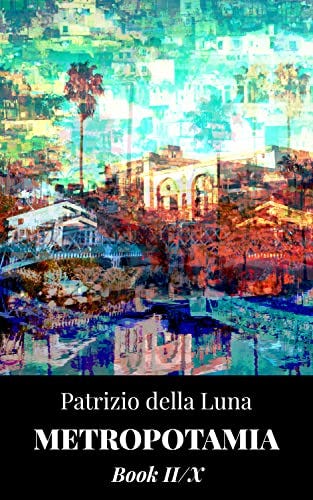
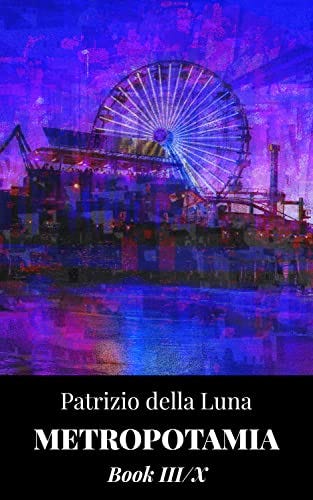
The protagonists’ journey through the vividly depicted ’00s of the United States affords the narrative many chances to focus on character depth and emotional nuance in precise portrayals of the characters' struggles, conflicts, and inner turmoil. While the novels explore the complexities, challenges, and unique experiences of living in a metropolis, our cities’ peculiar blend of opportunities and struggles allow us to delve into the effects of class divides, cultural clashes, and the impact of urbanization on the diverse tapestry of individuals, communities, and social structures coexisting in the modern day.
Throughout each novel, intriguing juxtapositions of urban and natural elements stage the frequent conflicts (and occasional harmonies) arising between the concrete structures of a city and the organic flow of life within it, and how their interactions shape them both. To that end, Della Luna embeds a peculiar cosmology into his literary realism that morphs the familiar into the surreal: vibrant and mesmerizing, the narrative cultivates a psychedelic landscape of depth enough to transport readers into a faithful reproduction of the contemporary dystopia to which all Americans today would recognize themselves as native.
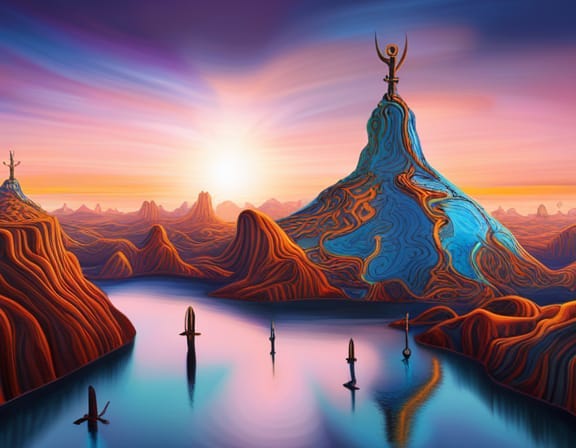
I believe Della Luna shows himself particularly apt at depicting how that contemporary dystopia—a society that pretends itself bright and full of promise even when it crumbles before your eyes—produces a kind of cognitive dissonance in those who must operate within it. While this phenomenon normally lurks unnoticed in daily life, here we can’t avoid it. As Ethan R. Ray (another writer whom Diaphora Books has been honored to publish) put it to me in an email after reading Book I, “metaphysical diving expeditions take the reader into wondrous, uncharted internal realms […] snippets of otherwise disregarded thought patterns make their way to the reader’s perceptions like unexpected but welcome flotsam.”
Of course I’m biased, having experienced firsthand the psychological impact of operating within our dystopia, but such techniques lend the cast an extraordinary authenticity. Unforgettable characters populate Metropotamia, with their own unique stories and struggles. With enigmatic principal characters engaged in mind-altering explorations of consciousness and a supporting cast that adds layers of complexity to the narrative, Della Luna weaves a tapestry of human experiences.
In short, Metropotamia creates a grand and expansive world of its very own throughout a sprawling narrative that spans numerous episodes featuring a charming cast and traversing outlandish thematic layers as it delves into the broader complexities of the modern individual and of urban existence. Meanwhile, Della Luna’s remarkable voice paints a captivating, multifaceted urban ecosystem, inviting readers to immerse themselves in a richly detailed setting while exploring themes that resonate with contemporary society.
Like me, I’m sure readers will find themselves enthralled by the intricate plot, the interplay of themes, and the thought-provoking commentary on society that Metropotamia offers. Della Luna’s skillful exploration of the human psyche, social dynamics, and the pursuit of meaning in a complex world elevates the novel to a level of literary brilliance seldom seen. Metropotamia stands as a testament to Patrizio della Luna’s unparalleled mastery of the written word. It is a must-read for anyone who appreciates artful storytelling, compelling characters, and a narrative that leaves a lasting impact.
For all these reasons and more, I’m absolutely thrilled (as Diaphora Co.’s interim founder) to have seen Diaphora Books release Metropotamia these past three years, and thereby give readers the chance to experience the brilliance of Patrizio della Luna’s writing. My anticipation only grows as Diaphora Books prepares to collect the first three of these groundbreaking novels in Metropotamia, Vol. 1, and I look forward to presenting them all here for subscribers in months to come.






